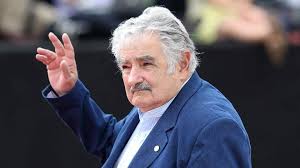The Life and Legacy of Jose Mujica

Introduction: A Unique Political Figure
Jose Mujica, the former President of Uruguay from 2010 to 2015, is often referred to as the “world’s poorest president” due to his humble lifestyle and commitment to simplicity. His unconventional approach to politics and governance has made him a prominent figure not only in Latin America but also across the globe. As a farmer, former guerrilla fighter, and politician, Mujica’s life reflects a radical departure from traditional political norms, emphasizing transparency, integrity, and empathy.
Background and Early Life
Born on May 20, 1935, in Montevideo, Mujica grew up in a modest family. He became involved in leftist politics during the 1960s, ultimately joining the Tupamaros, a revolutionary group that aimed to overthrow the Uruguayan government. After being captured and imprisoned for over a decade, he returned to politics and was elected to the Senate in 2009. His presidency began in 2010, marking a significant shift in Uruguayan politics.
Leadership Style and Achievements
Mujica’s presidency was distinguished by his unorthodox style and policies, which focused on social welfare, human rights, and environmental issues. One of his most notable achievements was the legalization of same-sex marriage, positioning Uruguay among the first countries in Latin America to adopt such legislation. Additionally, his government also pioneered the legalisation of cannabis, aimed at reducing drug-related violence.
His personal lifestyle complemented his policies; Mujica famously lived on a small farm, donated a significant portion of his salary to charity, and eschewed lavish public appearances. His down-to-earth persona resonated with many, leading to his global reputation as a symbol of modesty.
Impact and Legacy
Jose Mujica’s influence extends beyond the borders of Uruguay. His speeches and philosophy have inspired countless individuals, advocating for social justice and an ethical approach to governance. His statement, “You can’t buy the happiness of a poor person with money,” encapsulates his belief that true wealth lies in human connections and happiness, rather than material possessions.
Conclusion: A Lasting Influence
Jose Mujica remains a significant figure in contemporary politics, representing a model of integrity and humility in leadership. As the world grapples with issues of inequality, social justice, and environmental sustainability, his ideals continue to inspire a new generation of leaders and citizens. As we look ahead, the question remains: how can other political figures emulate Mujica’s commitment to the common good while navigating their own political landscapes?









